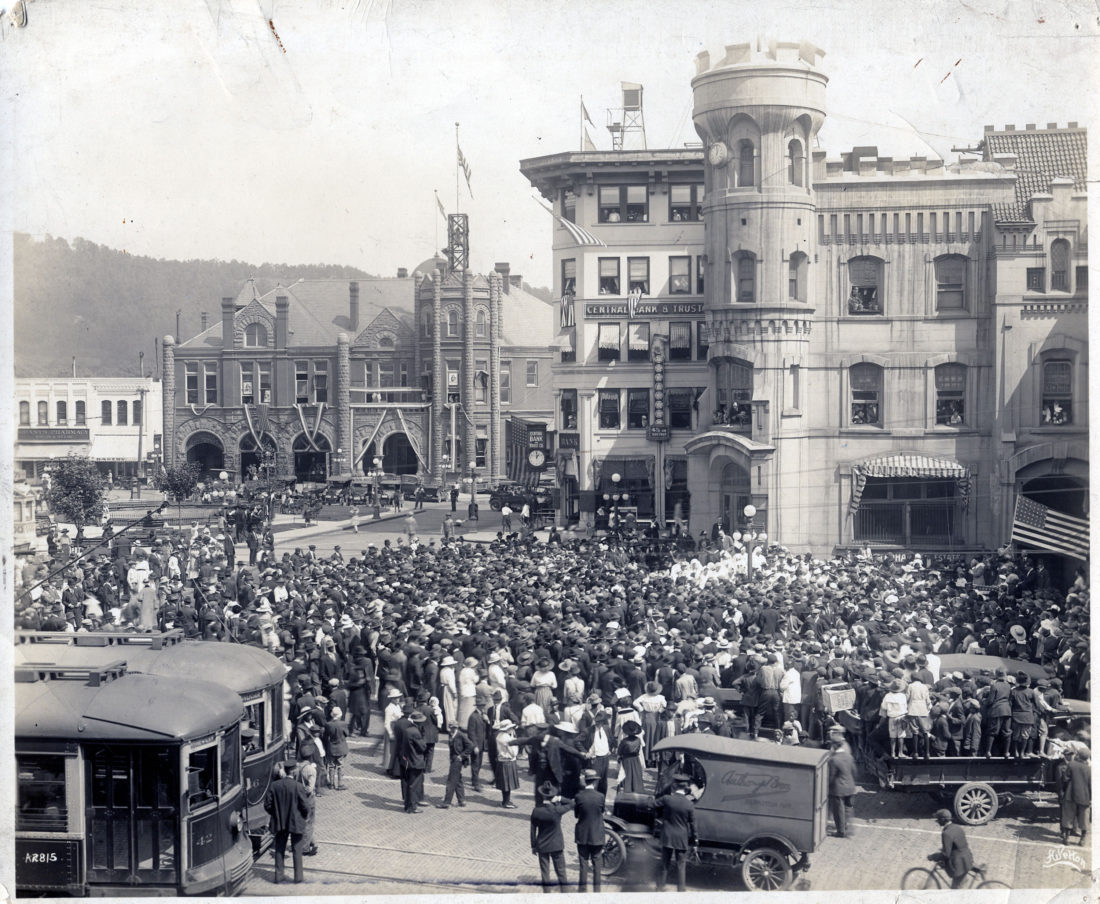In late November 1918, in the midst of the great influenza pandemic, Asheville’s health officer, Dr. Carl V. Reynolds, lifted a nearly two-month-long ban on social gatherings. Yet, by mid-January 1919, with 141 new cases reported in Buncombe County within a 72-hour window, a new partial ban was reinstated. Unlike the previous shutdown, churches, schools and theaters — now deemed essential — would remain open. Social and fraternal gatherings, on the other hand, were once more prohibited.
According to Reynolds’ new measures (published in the Jan. 16, 1919, edition of The Asheville Citizen), theaters were required to place placards in prominent view, declaring it illegal to sell tickets to anyone with a cold or cough. Meanwhile, schoolteachers were advised to start each day by questioning their students about the collective health of their families. Instructors were also asked to take the temperature of “each suspicious child.”
The latest measures were met with resistance. In an official statement published in The Asheville Citizen on Jan. 18, 1919, J.D. Lindsey, president of the Central Labor Union, questioned why the new rules allowed teachers to play doctor, while union leaders were denied similar privileges. He also asked why churches could hold services, but “twenty printers [were] forbidden to meet for a brief session in the middle of the afternoon at a place in which air circulates and sun shines[.]”
“To say that a meeting of laborers organized for mutual protection is unessential and that a crowded store is necessary because the wheels of business must be kept turning, in my opinion, is strange reasoning,” Lindsey wrote. “If meetings are dangerous, let us stop all meetings. If they are harmless, let us hold them as often as we like.”
The following day, The Sunday Citizen reported on Reynolds’ updated plan to shut down theaters and limit church services.
In an editorial featured in the same day’s paper, The Sunday Citizen lambasted Reynolds’ latest series of announcements. “This paper cannot follow Dr. Reynolds when he moves in circles, and by a series of strange inconsistencies virtually invites the ‘flare-up’ of influenza which he now reports,” the editorial declared. “It is not surprising therefore that Asheville’s citizenship grows hourly more indignant, and that already there is a veritable storm of protest against the continuance of policies which get nowhere, when others that might prove effective if adopted are ignored.”
Instead of closing businesses, the paper argued, the city should establish strict quarantine laws for residents afflicted with the virus, confining them to a designated hospital.
Despite these public outcries, Reynolds kept the ban in place for nearly a month, lifting it on Feb. 12, 1919, once the number of new influenza cases neared zero. In his announcement, the health officer continued encouraging residents to use caution while in crowds; he also reminded the community that it remained illegal for anyone with a cold or cough to enter a theater.
Editor’s note: This is an ongoing series that examines the 1918 influenza. Previous articles can be read at the following links: avl.mx/73d, avl.mx/73e and avl.mx/73f. Spelling and punctuation are preserved from the original documents.






Before you comment
The comments section is here to provide a platform for civil dialogue on the issues we face together as a local community. Xpress is committed to offering this platform for all voices, but when the tone of the discussion gets nasty or strays off topic, we believe many people choose not to participate. Xpress editors are determined to moderate comments to ensure a constructive interchange is maintained. All comments judged not to be in keeping with the spirit of civil discourse will be removed and repeat violators will be banned. See here for our terms of service. Thank you for being part of this effort to promote respectful discussion.